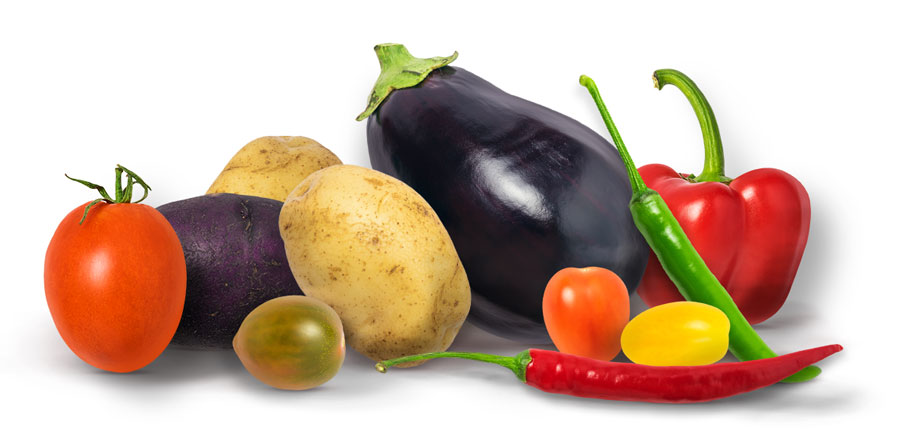Nightshade Vegetables and Deadly nightshade
![]()
Nightshade meaning and definition
The “night shades” were named because most of them grew in the shades and bloomed at night. Solanaceae is a family of flowering and fruit plants, many of which are edible foods, others known as poisonous plants. The solanum family plants consist of about 98 genera and some 2,700 species. Solanaceae has plant shrubs, trees, vines and some underground tubers.
These included many agricultural Nightshade vegetables, fruit, medicinal plants, black nightshade plant, Bittersweet, Silverleaf, spices and weeds plants. It is known as nightshade On the continent of America and Europe. The Nightshade flower is present worldwide on all continents except Antarctica. The most solanum nightshade family of plants are found in South America and Central America.
Table of contents :
- What are nightshades?
- Why are they called nightshade vegetables?
- What vegetables are in the nightshade family?
- What plants are in the nightshade family?
- What is nightshade plants?
- What are nightshade vegetables?
- What are nightshades fruits and vegetables?
- What are the nightshade vegetable list?
- What are nightshade foods?
- What is a nightshade allergy?
- What is deadly nightshade?
- Why are nightshade vegetables bad for you?
- what are nightshade vegetables and inflammation?
Family Foods of Nightshade
- Tomatoes
- Tamarillos
- All potatoes, except sweet potatoes
- Eggplant
- All bell peppers and other peppers (except peppercorns)
- Ground cherries
- Goji berry
- Pimentos
- Tomatillo
- Tobacco
- Bittersweet
- Silverleaf
- Belladonna
- Ashwagandha
- Black nightshade
Common Edible Nightshades Fruits And the Vegetable list
- Tomatoes
- Tamarillos
- All potatoes, except sweet potatoes
- Eggplant
- All bell peppers and other peppers (except peppercorns)
- Ground cherries
- Goji berry
- Pimentos
- Tomatillo

Most of the common nightshade veggies are much in nutrients. These types of nightshade are easily found naturally and can be easily produced in the garden.
The economically important crops of this Nightshade family are potato, tomato, bell pepper, eggplant, capsicum, chili pepper which are produced as agricultural food grains. And these economically important species include tobacco and Ashwagandha.
Here is a list of the most popular vegetables of the nightshade family that vegetables we eat include:
All Tomatoes
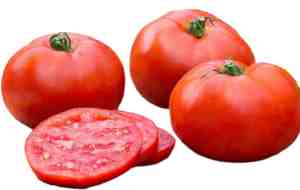
Tomatoes belong to the nightshade family, very delicious and nutritious vegetables. Even 200 years ago, tomatoes were considered poisonous in the United States because the plant belonged to the poisonous nightshade family. Usually green in its raw, When ripe, it can usually come in a variety of colors, including red, tomato yellow, orange, green, and purple.
Every 100 grams of tomato has nutritional value Vitamin-B, Vitamin-C, Vitamin-E, Vitamin-K. Tomatoes contain a special element called lycopene and are rich in antioxidants which can help prevent cancer of the lungs, stomach, pancreas, colon, breast, bladder, prostate and other organs. Tomato is a very effective component in controlling high blood pressure and skin diseases. Tomatoes contain a substance called lycopene which gives it a bright red color.
Tamarillos
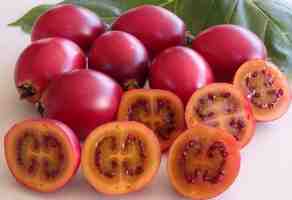
Tamarillo, also known as the tree tomato, is bright red or golden, egg-shaped, juicy and flavorful. Tamarillo helps in heart disease, blood pressure control, eye health, metabolism and maintaining the body in good health. Tamarillo is a lot of calories, Vitamin-A, Vitamin-C, Calcium, Magnesium, Iron and Antioxidants.
Potatoes

Potato is a nutritious food that strengthens the body and is especially effective in increasing the performance of the stomach. Potatoes contain a variety of fatty acids, including vitamin B complex, amino acids, and omega-3, which help increase brain function. Potatoes nightshades are a good source of carbohydrates, protein, calcium, vitamin C and vitamin B complex, all of which help fight heart disease and keep blood pressure normal. Potatoes contain potassium, magnesium, zinc and phosphorus, all of which are good for your skin.
Eggplant
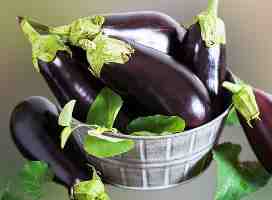
As an essential vegetable, the nutritional value of eggplant is very important for our good health. Eggplant nightshade is a lot of calcium and magnesium which is very beneficial for teeth and bones. Eggplant is a vegetable rich in vitamins ‘A’, ‘C’, ‘E’ and ‘K’ which nourishes the skin, hair, nails and eyes. There are asthma and allergies, there are some restrictions on eggplant.
All bell peppers and other peppers
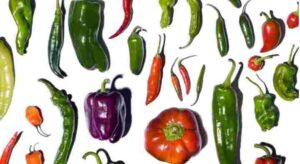
Bell pepper nightshade or Capsicum is a popular vegetable in the world. It is used to add extra flavor to regular food. Capsicum has too many antioxidants, proteins, carbohydrates and vitamin C. Moreover, It contains vitamins B, E, K, thiamine, folic acid, riboflavin etc.
Peppers are rich in the antioxidant beta carotene, as well as fiber, thiamine, riboflavin, niacin, folate, iron, manganese and phosphorus. There are also several other nutrients, Such as – Vitamin A, C, K, B-6, Potassium, Copper and Magnesium. Pepper helps our body reduce blood cholesterol.
Ground cherries
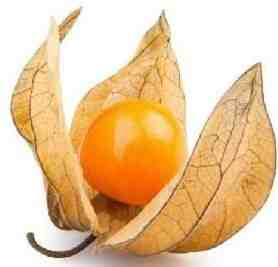
The Ground cherries fruit is small and yellow to orange similar in size, shape and structure to small tomatoes hence the name husk tomato. Ground cherries are also known as Cape Gooseberry, Poha Berry, Peachuberry, Ground Tomato, Strawberry Tomato, Golden Berry, Inca Berry. Ground cherries contain beta carotene and antioxidants that convert our body into vitamin A to prevent disease, prevent migraines and protect the reproductive organs from cancer. These can be annual or perennial. It requires full sun and moderately warm to warm temperatures for cultivation. The fruit can be used as a tomato. It can be eaten raw and used in salads. Some are used as dried and raisins.
Goji berry
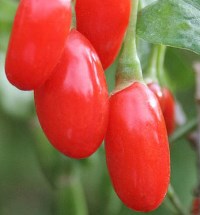
Goji berry, also called wolfberry. Goji berry is a small red fruit rich in nutrients which is rich in antioxidants. These are healthy foods and delicious. These berries are often found as powdered or dried.
It has been used as a healthy food in developed countries since about 2000. Goji berry contains a lot of nutrients. Goji berries provide plenty of vitamins and minerals and These are a good source of protein and high antioxidants. Goji berry improves the immune system. Goji Berry People have long used Goji Berry to treat many common health problems such as diabetes, high blood pressure, fever and age-related eye problems.
Goji berry is eaten raw, cooked, like dried raisins and used in herbal teas, juices, wines and medicines.
There are health benefits like good sleep, weight loss and improvement of your immune system and high antioxidants. It also slows down the signs of aging, maintains eye health and strengthens the liver, kidneys and lungs.
Pimentos
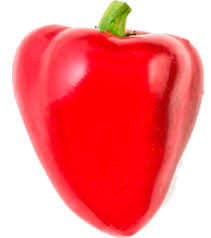
Pimento is a type of pepper. The nightshade is a variety of large, red, heart-shaped chili peppers that are 3 to 4 inches (7 to 10 cm) long and 2 to 3 inches (5 to 7 cm) wide. Pimento peppers can usually have different colors including yellow, green, red and maroon. These peppers are green when immature and red when they reach maturity. Pimiento peppers are sweeter, juicy and more fragrant than red bell peppers. The addition of olives with Pimiento and makes it delicious with pasta. Mayo, hot sauce, cheddar, mixed with cream cheese, used as a spice in all kinds of sandwiches and burgers. These are added to soups, pasta dishes and salads as a wonderful delicacy.
Tomatillo
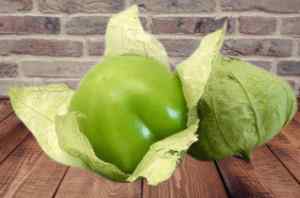
Tomatillos, known as the Mexican husk tomato. It is a plant of the nightshade family. The fruits are usually small, round and green or greenish-purple in color. The Tomatillos fruit is surrounded by a paper-like husk. As the fruit matures, it becomes husk-filled and has to be separated after harvesting. Fruits can be yellow, green, or even purple in color when ripe.
Tomatillos is a staple of Mexican cuisine that is eaten raw and cooked in a variety of dishes. Tomatillo’s Salsa Verde is a special cuisine of Mexican. There are also various uses of Tomatillos in stews, soup, salad, curry, stir-fries, baking, cooking with meat, marmalade and dessert. Tomatillos contain high levels of fiber which helps improve digestion. Tomatillos contain unique antioxidant phytochemicals that are associated with anti-cancer properties. Tomato is widely grown in Mexico. Tomatillos are grown on a small scale in many parts of the United States.
Health benefits of nightshades vegetables
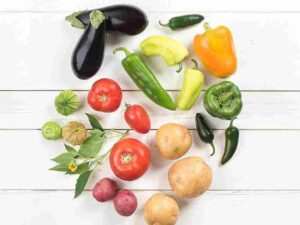 The Nightshade vegetables are wealthy in nutrients and it provides several health benefits in the human body and animals. The vegetables are nutritious and healthy, affluent in vitamins and proteins with fiber. Known as tomato cancer fighters, bell peppers and eggplants are appreciated for their nutrient concentration.
The Nightshade vegetables are wealthy in nutrients and it provides several health benefits in the human body and animals. The vegetables are nutritious and healthy, affluent in vitamins and proteins with fiber. Known as tomato cancer fighters, bell peppers and eggplants are appreciated for their nutrient concentration. Many members of the family contain strong alkaloids and some are highly toxic but are used as many Nightshade foods including tomatoes, potatoes, eggplants, bell peppers and peppers.
Nightshade family foods have found a small amount of alkali. Alkalis must contain nitrogen which is Influenced in the human body and animals. All nightshade foods contain nitrogenous substances found in tree leaves, stalks and edible parts. Morphine and quinine are two drugs that contain plant-based alkalis.
An observation in 2010 found that purple potatoes and yellow potatoes could reduce inflammation of the body and harm of DNA. The vegetables are nutritious, healthy food and do not cause inflammation.
The fruits of black nightshade can be eaten effortlessly. Chemical extracts from leaves and roots are used in various medicinal fields. Black nightshade is used to treat skin diseases, stomach complications, fever and various ailments.
Do Nightshade vegetables cause inflammation?
Many people believe that solanine in nightshade vegetables can cause inflammation and arthritis in the body. It can even make arthritis pain and inflammation worse. But there is no research that shows that eating vegetables has a direct effect on inflammation and arthritis.
Rather, 2010 research found that eating nightshade vegetables could actually reduce inflammation and reduce DNA damage in the body. This is because it contains high levels of antioxidants, including carotenoids which prevent cell damage. Many people may have allergies to vegetables, but they can remove them from their food list.
If you want to eliminate nightshades, you can list nutritious vegetables including sweet potatoes, cauliflower, mushrooms.
Allergy of Nightshade
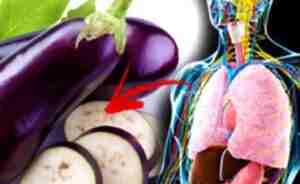
Nightshade vegetables are rich in nutrients. But some people have food allergies and may even have allergies to vegetables. Some vegetables feel an allergic reaction with other members of the Nightshade family but may have your reaction to eggplant. Although certain allergenic proteins are not common to all members of the family, these allergens in some plants can cause mild to severe reactions.
Most reactions are specific to eggplant from protein allergens that cause side effects, including hives, known as anaphylaxis with severe stomach problems, and some non-protein compounds in eggplant can cause allergies.
Alkaloids are a class of potential allergens consisting of nitrogen atoms. And their alkaline content is reduced as a result of cooking. Your eggplants should be cooked extensively to avoid potential toxic reactions.
Many people may be allergic to one or more nightshade vegetables which eating causes symptoms like skin rash, pale skin, hives, shortness of breath, cough, shortness of breath, weakness. If any person has a nightshade food intolerance or nightshade allergy then they can remove it from their diet.
Poisonous Deadly nightshade that’s bad for human health
Nightshade vegetables contain acceptable amounts of alkaloids. Alkaloids are beneficial to human health, but can also have negative effects. Some nightshade plants are poisonous, including belladonna, which is also known as deadly nightshade or nightshade poison. Nightshade is a chemical found in plant tobacco that can cause cancer.
How do you know Belladonna Nightshade is deadly?
Belladonna
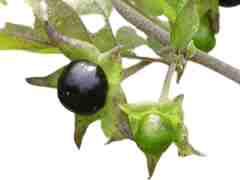
Atropa belladonna belongs to the deadly nightshade family, commonly known as the deadly nightshade plant. Attractive and dangerous poisonous trees are found in forests and in the southern part of Britain (UK). Although highly toxic, it feeds on wildlife and even has medicinal properties.
The tall shrub is also known as Laurel of Flower or Trinitaria. Shrub This plant has intense green leaves and its leaves, flowers, stems, branches and seeds are all highly toxic, hence it is also known as “the most poisonous plant in the world”. Deadly nightshade berries can cause a variety of symptoms, including blurred vision, rashes, headaches, delirium, convulsions, and eventually death. Just playing two to four deadly nightshade berries can kill a human child. Ten to twenty berries can kill an adult.
Ophthalmologists also use atropine opium and chloroform poisons for eye examination and surgery. Belladonna is used in a variety of pharmaceutical industries to relieve pain from sciatica, gout, and cardiac palpitations.
Green potatoes
Potatoes are generally a safe vegetable, although when potatoes turn green they contain more alkaloids and their taste becomes more bitter. If you eat green potatoes, you may feel nauseous, diarrhea and upset stomach. It can even cause fever or headache. That’s why people usually suggest dropping the green potatoes.
Bittersweet
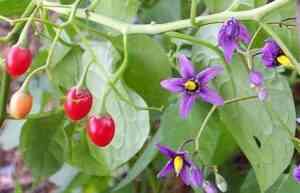
While the Bittersweet Deadly Nightshade is not like Belladonna, the Bittersweet Nightshade is somewhat toxic. All parts of the bittersweet or woody nightshade plant contain toxic alkaloids which are very harmful to humans, pets and cattle. Bittersweet Nightshade is somewhat safe for most adults but completely unsafe for children. Symptoms of bittersweet poisoning include Prickly heat, headache, dizziness, enlarged eyelids, difficulty speaking, low body temperature, vomiting, diarrhea, bleeding in the stomach or intestines, convulsions, slow blood circulation and shortness of breath, and even death. Bittersweet has caused toxic damage to cattle and pets. Bittersweet nightshade has a strong, unpleasant odor, so most animals will avoid it. The ripe fruit of the bittersweet plant is generally less toxic than the leaves and raw berries, and even sometimes ripe berries can be poisonous.
Silverleaf
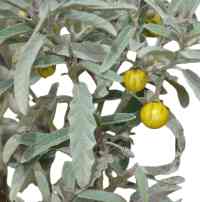
Silverleaf nightshade is classified as a poisonous or poisonous plant that is toxic to horses, sheep, goats, cattle and humans. The Silverleaf plant is a common roadside flower in most parts of Texas. The beautiful purple flowers turn into a globe. However, some birds eat this fruit. The leaves are covered with silvery youth, hence the common name Silverleaf. The Silverleaf plant is rich in solanine, a toxic glycoalkaloid that causes a variety of problems, including gastrointestinal, neurological, abdominal pain, dizziness, headaches and arrhythmias. At all stages of maturity all parts of the plant are poisonous, including the fruit.
Black nightshade
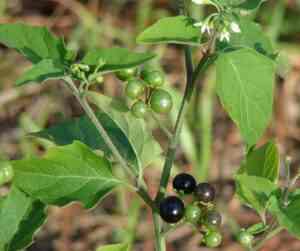
Black nightshade is a poisonous species of plant also known as deadly nightshade. It usually uses whole plants including leaves, fruits and roots to make medicines. Apart from ripe fruits, parts of these plants are highly toxic to cattle and humans. Eating unripe fruit can cause toxic symptoms like glycoalkaloid solanine. Eating small amounts can cause nausea, vomiting, headaches and other side effects. Eating too much can cause serious poisoning. Symptoms of poisoning include irregular heartbeat, shortness of breath, dizziness, drowsiness, twisting of arms and legs, cramps, diarrhea, paralysis, coma and even death. It is not safe to take black nightshade during pregnancy and breastfeeding. This can cause birth defects in the baby.
It is used to treat various ailments, such as pneumonia, toothache, abdominal pain, tonsillitis, wing worms, pain, inflammation, fever, tumors, as a tonic, as antioxidant, anti-inflammatory, hepaprotective, as diuretic, and as antipyretic.
Common edible foods that are mistaken for Nightshades foods
The foods are not nightshade
- Black pepper
- Blueberries
- Coffee
- Cucumbers
- Garlic
- Ginger
- Horseradish
- Mushrooms
- Onions
- Okra
- Peppercorns
- Spinach
- Squash
- Strawberries
- Sweet potatoes
- Wasabi
- Zucchini
